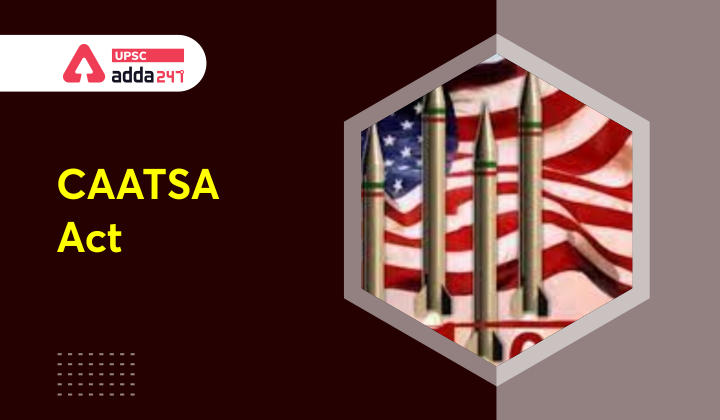Table of Contents
CAATSA Act: Relevance
- GS 2: Effect of policies and politics of developed and developing countries on India’s interests, Indian diaspora.
CAATSA Act: Context
- Recently, lawmakers in US again voiced their support for a sanctions waiver for India for its purchase of the S-400 missile defence system from Russia.
Have you cleared UPSC CSE Prelims 2021? Register Here for Free Study Material
CAATSA Act 2021: Key points
- India is likely to begin taking delivery of the S-400 in November, which might invite U.S. sanctions under a 2017 law, Countering America’s Adversaries Through Sanctions Act (CAATSA).
India-US Clean Energy Agenda 2030 Partnership
About S-400 missile system
- S-400 missile defence systems is a sophisticated air defence technology from of Russia.
- It is capable of tracking and neutralising threats to boost the air defence capabilities of the armed forces.
- The S-400 air defence system is equipped with targeting systems, multifunction radar, autonomous detection, anti-aircraft missile systems, launchers and a command-and-control centre.
- It is capable of engaging aerial targets, including aircraft, unmanned aerial vehicles (UAV), ballistic and cruise missiles, within the range of 400km at an altitude of up to 30km and can fire three types of missiles to create a layered defence.
CAATSA explained
- The Countering America’s Adversaries Through Sanctions Act (CAATSA) is a United States federal law that imposed sanctions on Iran, North Korea, and Russia.
- The Act empowers the administration to impose sanctions on countries that purchase major defence hardware from Russia in response to Russia’s annexation of Crimea in 2014 and its alleged meddling in the 2016 US presidential elections.
- The Act also states that the President may temporarily waive the imposition or continuation of sanctions under specified circumstances.
India and S-400 missile system
- India in 2018 signed a $5 billion deal with Russia to buy five units of the S-400 air defence missile systems to enhance its defence system.
- Despite the fears that the purchase could lead to Countering America’s Adversaries Through Sanctions Act (CAATSA) sanctions, India, in 2019, made the first tranche of payment of around $800 million to Russia.
- After the payment, India had received a warning from the Trump administration that India might face US sanctions if it goes ahead with the contract.
India-Russia Energy Cooperation
Why sanctioning India is not in the interests of US?
- Sanctions would have a disastrous effect on U.S.-India relations for decades to come.
- In India’s eyes, the United States would once again be regarded as untrustworthy.
- Sanctions would push India closer to Russia at a time when India is reeling from the decision to withdraw from the Iran deal—Iran is India’s third largest supplier of crude oil.




 TSPSC Group 1 Question Paper 2024, Downl...
TSPSC Group 1 Question Paper 2024, Downl...
 TSPSC Group 1 Answer key 2024 Out, Downl...
TSPSC Group 1 Answer key 2024 Out, Downl...
 UPSC Prelims 2024 Question Paper, Downlo...
UPSC Prelims 2024 Question Paper, Downlo...




